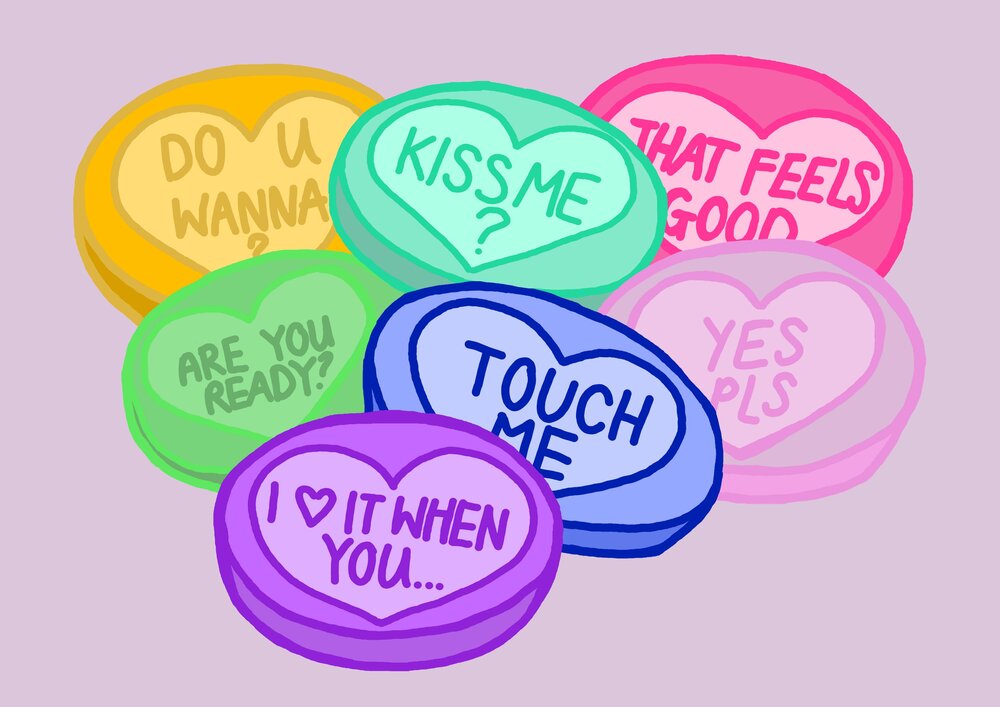Generation Black TV - Live
The Relationship Between Gen Z and Sex Positivity
Examining the cultural moments that exposed millennial and older Gen Z women to the darker side of sex-positivity
It’s fair to say the internet is obsessed with people’s sex lives, and never more so than in the last few years when long periods of isolation have forced many of us to stay at home and turn our gazes inward, leaving some people incredibly bored. However, the tide of scrutiny and criticism provoked by Onlyfans and the boom in online sex work in recent years has given over to another source of panic – the rise of what has been dubbed in some quarters, the ‘Puriteen’.
It’s been established for a while now that younger generations are allegedly not having as much sex as we used to. And, this is for a whole host of reasons, not least the distractions technology has to offer. However, commentators complaining that young people don’t have an enthusiastic enough attitude towards sex is an interesting source of moral panic, to say the least.

Billie Eilish © British Vogue
Various outlets have weighed in on this phenomenon, including The Guardian, Rolling Stone and Buzzfeed. The slew of articles last autumn seemed to agree on one thing, while there were various sources from which this ‘concern’ seemed to arise, including discussions around kink at Pride events, there was no clear target. The Guardian went so far as to use Billie Eilish as the face of this movement, all because she went so far as to say that porn was a “disgrace” and that its influence led to her feeling pressured to enjoy certain things, “The first few times I, you know, had sex, I was not saying no to things that were not good. It was because I thought that’s what I was supposed to be attracted to.”
When the issue of Gen Z sex-positivity first came into the media, the nostalgic ‘Twilight Renaissance’ was still popular, bolstered by the TikTok-driven micro trend cycle. It was then that it became apparent; women in their twenties really have lived the consequences of certain cultural moments around relationships and sex-positivity. Back in the late noughties and early 2010s, the pop-cultural landscape was drastically different to the one young women navigate today. Twilight, and many other similar YA book series, introduced young women to a formidable brand of teen romance writing. And, while I’d hesitate to describe Stephanie Meyer’s work as ‘sex-positive’, it introduced us to problematic romantic heroes and scenarios that became powerful tropes.

Twilight Summit © Entertainment
After all, Bella’s love interests are jealous, possessive and controlling. She is kissed without her consent, stalked, watched while sleeping and even hurt during sex. The attitude of both her love interests is presented as intense and romantic. And, while there is a lot of nostalgia surrounding the series, upon revisiting it, it’s alarming to think of the impact those fictional relationships had on many tweenage brains, particularly as some women have mentioned how the series influenced their expectations of partners.
To add to this, 50 Shades of Grey, which was originally written as Twilight fanfiction, made a huge and controversial splash in the way sex was described in popular culture at the time of its release. Suddenly, kink was a trending topic in the mainstream, which was most likely an incredibly liberating thing for a lot of people. However, it would be hard to deny that it contributed heavily to a culture in which women are assumed to be ‘vanilla’ if they don’t enjoy acts such as spanking and choking that were once previously more associated with BDSM subculture than the mainstream.

50 Shades of Grey © Universal Pictures
So, if we’re having a reckoning on the darker side of the ‘sex-positive’ culture we’ve been living in for the last decade, who’s to say it’s unnecessary? It seems to me that the idea of sex positivity that became so popular throughout the late 2000s/2010s was only overwhelmingly ‘positive’ if you were sexually cavalier, active and into being ‘adventurous’. To give this time credit, it’s fantastic that this may have opened up a whole new world for some and encouraged frank discussion around what people might really want out of their sex lives. But, it wasn’t a moment that included everyone.
Young people today are overwhelmed with messaging concerning relationships and sex, but also have more access than ever to appropriate education and platforms upon which to advocate for themselves and their views. If young women and celebs like Eilish want to broadcast a view of sexuality that’s more in tune with them individually than the images of ‘good sex’ imposed by media and porn, then surely that’s something to be celebrated, not maligned?
If young people are practising scepticism in order to protect their boundaries, bodies and peace, the branding of this as anti-feminist sounding ‘sex-negativity’ is frankly puzzling – and something a lot of these pieces even seem to acknowledge as a straw man in conclusion.
‘Sex Positivity’ may have been a feminist movement, but it’s also a marketing tool, and a catch-all phrase that means many different things. The young people being branded ‘sex negative’ today are doing the same thing as feminists fighting for sex-positivity in the 70s – hoping for a safer and more fulfilling culture around sex and relationships for everyone. People growing up today have their own cultural milestones to confront when it comes to forming ideas about sex and relationships (Euphoria, anyone?). And, seeing young people becoming more critical of messaging that suggests that they must do or try certain things in the bedroom, or accept certain relationship behaviours outside of it, is frankly refreshing. We’ve come a long way since Forks – and I’m glad we’re still going.


